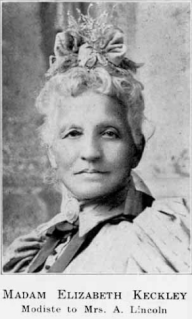A Quote by Adam Smith
How selfish soever man may be supposed, there are evidently some principles in his nature, which interest him in the fortune of others, and render their happiness necessary to him, though he derives nothing from it, except the pleasure of seeing it.
Related Quotes
What a man does, that he has. What has he to do with hope or fear? In himself is his might. Let him regard no good as solid but that which is in his nature, and which must grow out of him as long as he exists. The goods of fortune may come and go like summer leaves; let him scatter them on every wind as the momentary signs of his infinite productiveness.
If [God] has made it a law in the nature of man to pursue his own happiness, He has left him free in the choice of place as well as mode, and we may safely call on the whole body of English jurists to produce the map on which nature has traced for each individual the geographical line which she forbids him to cross in pursuit of happiness.
The man at the top of the intellectual pyramid contributes the most to all those below him, but gets nothing except his material payment, receiving no intellectual bonus from others to add to the value of his time. The man at the bottom who, left to himself, would starve in his hopeless ineptitude, contributes nothing to those above him, but receives the bonus of all of their brains. Such is the nature of the 'competition' between the strong and the weak of the intellect. Such is the pattern of 'exploitation' for which you have damned the strong.
Every man, however hopeless his pretensions may appear, has some project by which he hopes to rise to reputation; some art by which he imagines that the attention of the world will be attracted; some quality, good or bad, which discriminates him from the common herd of mortals, and by which others may be persuaded to love, or compelled to fear him.
Happiness consists not of having, but of being; not of possessing, but of enjoying. It is a warm glow of the heart at peace with itself. A martyr at the stake may have happiness that a king on his throne might envy. Man is the creator of his own happiness. It is the aroma of life, lived in harmony with high ideals. For what a man has he may be dependent upon others; what he is rests with him alone.
When a jealous person sees signs of other people's success and good fortune, his heart is pierced with envy. But someone who has learned to rejoice in the good fortune of others experiences only happiness. Seeing another person's beautiful house or attractive partner immediately makes him happy - the fact that they are not his own is irrelevant.
Already nature is serving all those uses which science slowly derives on a much higher and grander scale to him that will be served by her. When the sunshine falls on the path of the poet, he enjoys all those pure benefits and pleasures which the arts slowly and partially realize from age to age. The winds which fan his cheek waft him the sum of that profit and happiness which their lagging inventions supply.
I believe that the unity of man as opposed to other living things derives from the fact that man is the conscious life of himself. Man is conscious of himself, of his future, which is
death, of his smallness, of his impotence; he is aware of others as others; man is in nature, subject to its laws even if he transcends it with his thought.
If an enthusiastic, ardent, and ambitious man marry a wife on whose name there is a stain, which, though it originate in no fault of hers, may be visited by cold and sordid people upon her, and upon his children also: and, in exact proportion to his success in the world, be cast in his teeth, and made the subject of sneers against him: he may, no matter how generous and good his nature, one day repent of the connection he formed in early life; and she may have the pain and torture of knowing that he does so.
Those who merely possess the goods of fortune may be haughty and insolent; . . . they try to imitate the great-souled man without being really like him, and only copy him in what they can, reproducing his contempt for others but not his virtuous conduct. For the great-souled man is justified in despising other people - his estimates are correct; but most proud men have no good ground for their pride.



































